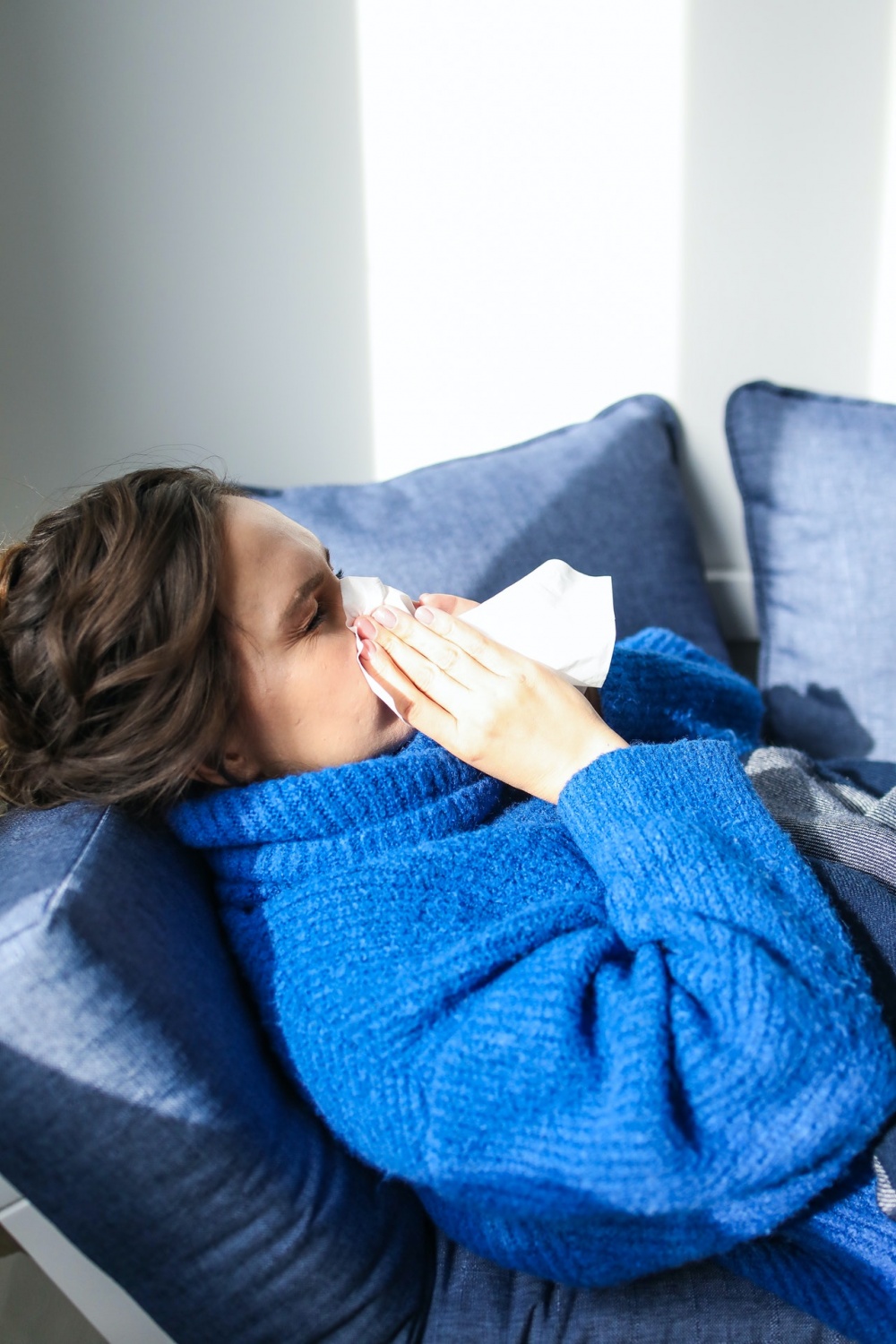Physical Wellness
Seven Things to Do If You Wake up Sick

(Photo : Seven Things to Do If You Wake up Sick)
The last thing you want to do if you aren't feeling well is wake up a to-do list. However, just because you aren't feeling well doesn't mean you don't have at least a few responsibilities.
There is good news. The list of things you need to do when you're sick isn't very long. Here are seven things you need to do if you wake up sick.
See the Right Doctor
If you wake up feeling unwell, it's always a good idea to go to the doctor. You just have to make sure you see the right doctor, especially in the age of coronavirus.
For example, those who catch the coronavirus can develop things like pneumonia, acute respiratory failure, and more, but not everyone develops these symptoms. That means you could go to the walk-in clinic with minor symptoms, like a cough and fever, but end up passing along a potentially deadly disease to someone else in the waiting room.
It's always a good idea to call before you visit a walk-in clinic. Let a nurse know what your symptoms are and she can tell you what to do. In many cases, the nurse will tell you to come into the walk-in clinic, but in other cases, you may discover that you need to go to the emergency room or schedule an appointment with a specialty clinic.
Contact Your Work
If you don't feel well, don't force yourself to go to work. Not only will you be unproductive and uncomfortable, you can pass on your illness to others, which no one will appreciate.
Calling in sick to work can be hard. Hopefully, you've taken the time to understand your work's sick leave policy, but if you haven't, your immediate supervisor should be your first call.
Keep your conversation brief, but mention any important information regarding your responsibilities for the day and explain how available you are during the day to answer questions. You should also ask if you have to provide any documentation regarding your illness when you return.
There may be other places and people you need to contact too. If you volunteer or attend classes, you may have to notify them that you won't be there as well.
Avoid Sharing Household Items
Not only should you protect the people at work from catching the illness you have, but you should also look for ways to protect your loved ones from catching your illness too. That starts with not sharing household items.
Don't share cups or snacks with small children, throw washrags and towels in the laundry without reusing them, and avoid sharing pillows to help prevent the spread of your illness.
If you are able, you may also want to consider quarantining yourself within your household. That can be hard when you share your space with roommates, but it is especially hard when you share your home with loved ones.
Spend as much time in the bedroom as you can while the rest of your family uses other spaces in your home. If you can, it's also a good idea to use your own bathroom.
Disinfect Commonly Touched Surfaces
Although you may try to stay away from common areas in your home, chances are, you are going to have to interact with your family a little bit. You'll have to come down to the kitchen for a snack, and you may decide you want to watch the large TV in the living room.
That's why it's important to disinfect surfaces that you touch often. Surfaces to clean frequently include:
-
Light switches
-
Door handles
-
TV remotes
-
Countertops
-
Toilet and faucet handles
If you're too sick to clean yourself, ask a member of your family to do it. Just make sure they wear gloves. They may also want to consider wearing a mask while they clean too.
Wash Your Hands Often
Washing your hands can keep you from getting sick, but it can help prevent you from spreading germs if you're already sick too.
The first step is making sure you wash your hands the right way. That includes washing under your fingernails, between your fingers, and singing the happy birthday song two times to ensure you spend enough time scrubbing.
You should also know how often to wash your hands. You should wash your hands:
-
Before and after you prepare food
-
Before you eat
-
After you use the bathroom
-
After you blow your nose, cough, or sneeze
-
After you treat a cut or wound
Stay Home
If you have minor symptoms, or you simply have errands to run that can't wait, you may be tempted to venture out into the world when you don't feel good. That's a bad idea.
Not only can pushing yourself too hard make you sick for longer, you run the risk of getting other people sick. It's much better to stay at home if you don't feel well.
That may mean you have to find other people to run errands for you. For example, a family member may have to take the kids to soccer practice and your spouse may have to pick up the toilet paper on their way home from work.
Get Plenty of Rest
In most cases, it's best to avoid exercising or overexerting yourself when you're sick. Instead, you should focus on getting plenty of rest.
Sleep if you can, but just because you can't sleep doesn't mean you should get up and keep yourself busy. Laying on the couch and relaxing can be just as restorative for your body as actually sleeping. Read books, browse the internet, or watch a movie marathon. The more you rest when you don't feel good, the quicker you'll get over your illness.
Fortunately, there isn't a whole lot you have to do when you wake up sick, but that doesn't mean you're completely off the hook! With help from this list, you can make sure you do everything you need to do so you can spend the day relaxing.
* This is a contributed article and this content does not necessarily represent the views of counselheal.com









Join the Conversation